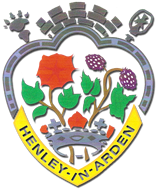Residents, can I refer you to the attached communication notes published today by WCC. Whilst every effort is made to ensure that the more vulnerable in our community are contacted in these times of extreme restrictions, some may not hear or be unable to react to them. If you have neighbours or relations that fall into this category, may I ask that to check that they are aware and if lacking in information, make contact with the various links included in the notes, so that proper care can be administered where needed. Thank you.
Ray Evans – Parish Clerk
COMMUNICATION WITH CEV COMMUNITY
A statement from Rob Powell, Strategic Director for Resources, WCC
Following up on yesterday’s social media pack for the move to Tier 4, we are writing to explain our current areas of focus. I have attached a further pack of communications material. It is important to note that while the situation remains extremely serious, both nationally and across the West Midlands, Warwickshire currently has rates that are below the Midlands average and well below the England average, strong testing rates and generally fewer concerns about hospital capacity than elsewhere in the Midlands. We are coping well and maintain a strong focus on the areas set out below in the coming weeks, and will keep you informed.
- Clinically Extremely Vulnerable (CEV) people: The attached supplementary pack contains social media content for CEVs who are now being advised to shield we have also made direct contact by text or email with over 16,000 of those on the list advising them to shield and signposting them to the website, Government guidance and our 0800 408 1447 helpline which remains open seven days a week. Letters will be sent to those without an email address or mobile number early next week. For the small number of children who are Clinically Extremely Vulnerable, we have issued relevant social media content and information for schools.
- Well-being and isolation: our intelligence suggests well-being, isolation and mental health represent the main requirements for support. We are making proactive well-being calls to CEVs, and are expanding well-being support available through the voluntary and community sector. We continue to promote the dearlife.org.uk website.
- Educational settings: Supporting secondary schools with standing up mass testing for the safe return to school is a key priority. We are working closely with secondary schools to explore ways in which the Council’s reach can help with co-ordination of recruitment, logistics and equipment, and will provide whatever help is required to reopen safely. We are working hard to develop communications for school leaders and parents/carers so that they are clear and confident about the arrangements for the next term. We will share with schools our own knowledge and insight from standing up our community testing sites to date. We are also in close contact with local universities around the staggered return to campus, and testing, and to build local community confidence.
- Care Homes: we are closely supporting care homes with outbreak management, vaccination, testing and visiting arrangements.
- Vaccination: we continue to work closely with the NHS locally and nationally around vaccination arrangements, especially following the brilliant news about approval of the Astra-Zeneca Oxford vaccine. Obviously maximising take-up of vaccination is key to supporting our economy, business and individuals to get back to a better way of life in 2021.
- Compliance and enforcement: we are working very closely with the police and district/borough councils around compliance and enforcement, and continue to focus much of our communications activity on getting basic Covid-compliant behaviour right.
- Community testing: we have successfully opened four community testing sites at Water Orton, Nuneaton, Bedworth and Leamington, open seven days a week, with additional sites opening next week in Rugby and the week after in Stratford. Just over 15,000 tests have been conducted to date.
- Winter Grants: we have made voucher payments of over £470,000 to the 13,100 children in Warwickshire eligible for free school meals, of which around 80% have been redeemed so far. Through the Local Welfare Scheme we have also supported smaller numbers of vulnerable individuals/households with fuel/energy, water bills, food, hygiene, winter clothing and broadband.
- Signposting to self-isolation payments and business support grants: we continue to signpost people and business to self-isolation payments and business grants available through the district and borough councils, and we are working closely with them, our businesses, the LEP and Growth Hub on longer-term recovery plans.
